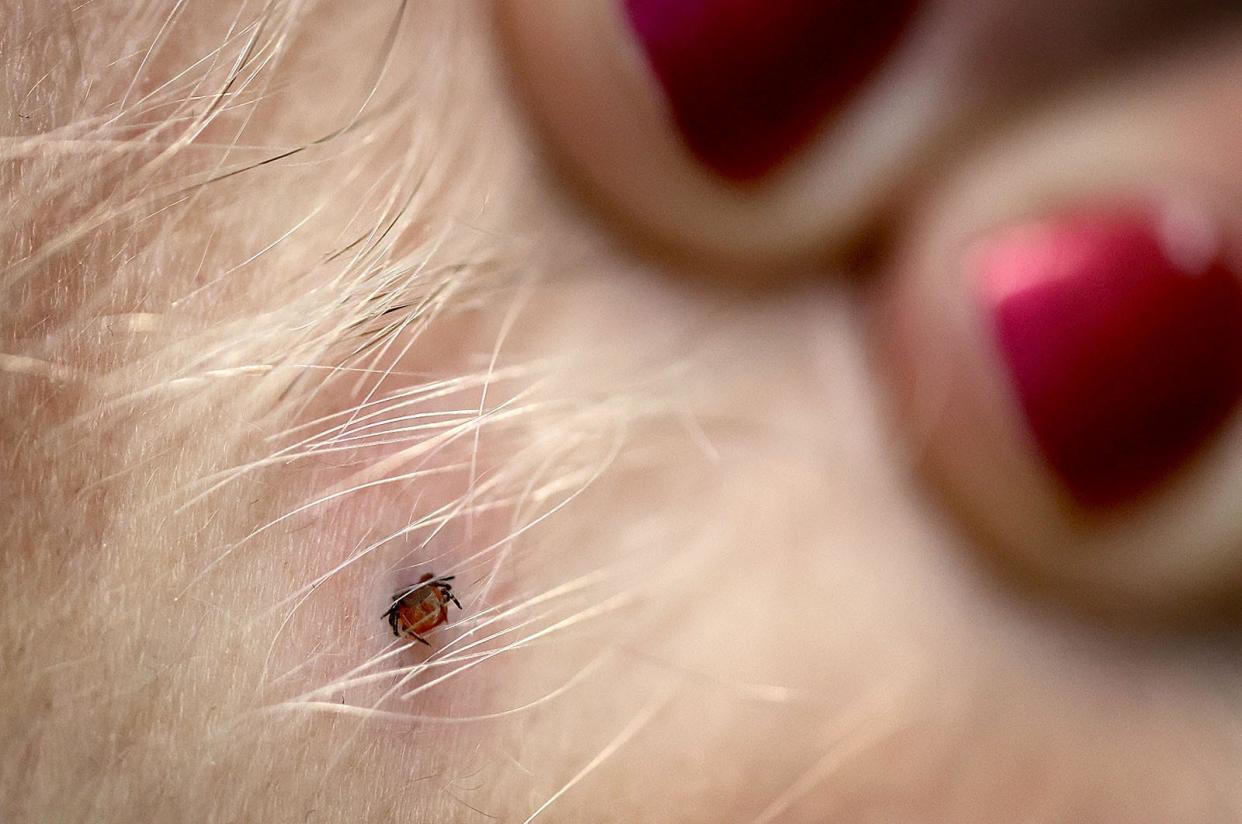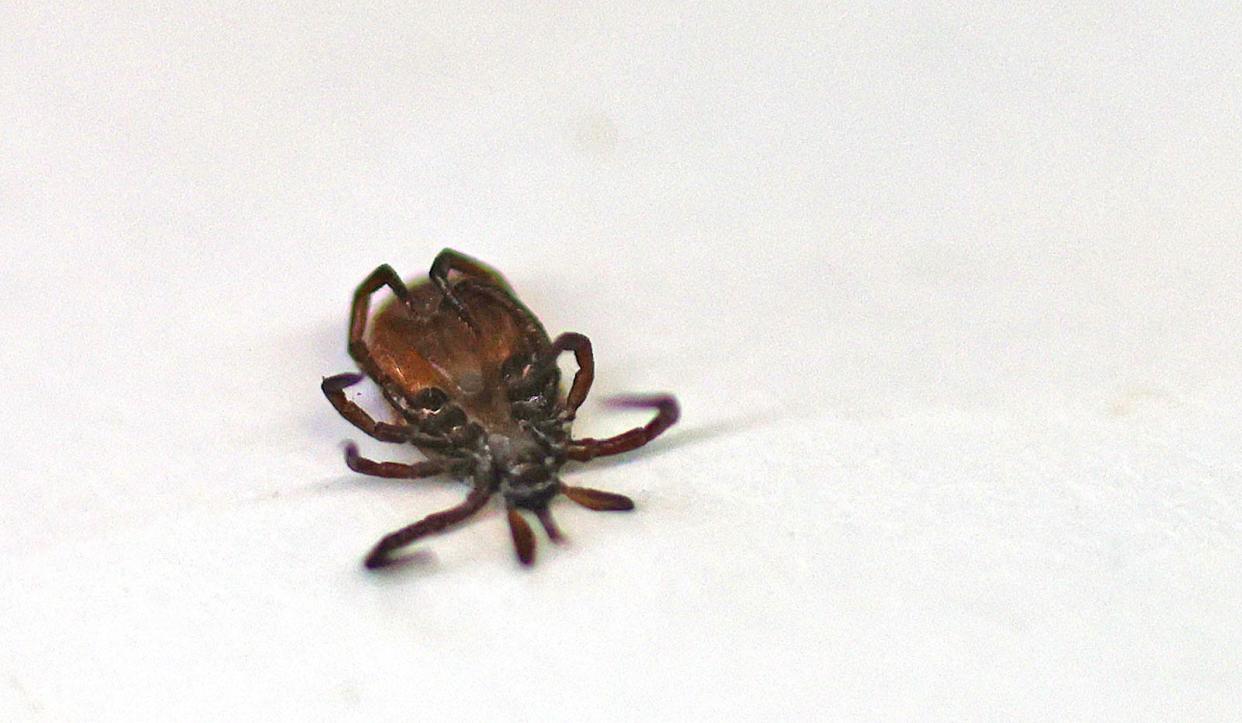What to know about tick and mosquito season in Massachusetts after this mild winter

Few things in life are guaranteed. Death. Taxes. Ticks.
As we approach the warmer weather of spring and emerge from a mild winter, now is the time to get back into the habit of checking yourself and your furry friends for ticks.
But, in actuality, people should be on alert for these tiny but potentially harmful pests year-round.
Snowy, freezing weather makes ticks less active, said Brian Hickey, of North Andover-based New England Organic Tick & Mosquito Treatment.
The average temperature recorded by the National Weather Service for December through February in the Boston area was 36.3 degrees.
Even if there been more freezing days this past winter, it’s unlikely to have made a dent in tick populations in Massachusetts, experts said.
“If you had an extremely cold snap, 20 below zero, it might have an impact,” said Dave Lawson, director of the Norfolk County Mosquito Control District Commission. “They’ve evolved to live in this area.”
Ticks are active when the temperatures are above freezing, so they may be more noticeable sooner. Anything below that, they find leaf litter to shelter under, with snow providing more insulation, Lawson said. Plus, black-legged ticks, also known as deer ticks, have an antifreeze protein that helps them withstand frigid temperatures.
Future drought conditions would make more of a difference in tick populations.
More: How climate change will bring more pests, disease to South Shore and beyond
Tick expert Sam Telford III doesn’t bother with predicting how the tick season will fare because winter affects parts of the state differently. He said it’s “counterproductive to make predictions.”
“The landscape is not homogenous. It’s very patchy. The effects you see in one town may be very different in another town,” said Telford, a professor of infectious diseases and global health at Tufts University Cummings School of Veterinary Health. “I don’t anticipate there will be any difference from what we saw in the fall.”
Just as you wear a helmet when riding a bike (or should), checking for ticks after taking a hike, gardening or walking along grassy areas should be considered as a similar safety habit, Telford said.

What types of ticks are in Massachusetts?
The most common ticks found in Massachusetts are black-legged ticks and dog ticks, according to the state Department of Public Health.
Black-legged ticks spread Lyme disease, babesiosis, anaplasmosis, Borrelia miyamotoi and Powassan virus. Lyme disease symptoms include flu-like symptoms, fatigue and a bull's-eye rash at the site of the tick bite.
How to keep safe from ticks
Here are ways to protect yourself from tick bites, according to the Centers for Disease Control and Prevention.
Wear long pants and long-sleeved shirts.
Tuck your pants into your socks.
Use EPA-approved insect repellents.
Avoid wooded areas, tall grass and leaf litter.
Buy clothing treated with 0.5% permethrin, or use a permethrin treatment on clothing (apply to clothing not being worn and let dry).
Check for ticks on clothing, pets, gear and these parts of your body: hair and scalp, ears, underarms, belly button, waist, between the legs and the back of the knees.
Hickey said residents should keep up with lawn maintenance so their backyards don't become tick hotspots.
What about mosquitoes in Massachusetts?
The state Department of Public Health is keeping an eye on viruses spread by mosquitoes.
With winter being warm and wet, and depending on the weather in spring and summer, conditions could be good for mosquito populations, a spokesperson said.
The department has concerns about the Eastern equine encephalitis virus, based on activity of the virus late last year. This virus doesn’t generally show symptoms, but can lead to fever or infection in the brain or the membranes around the brain and the spinal cord. It is more difficult to predict West Nile virus activity, the spokesperson said.
Hannah Morse covers growth and development for The Patriot Ledger. Contact her at hmorse@patriotledger.com.
This article originally appeared on The Patriot Ledger: 2024 tick and mosquito season in Massachusetts: What to know
